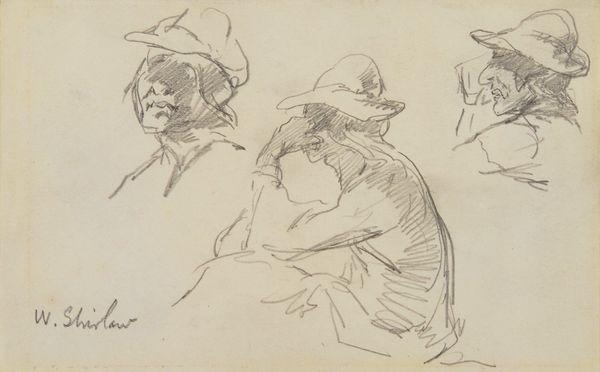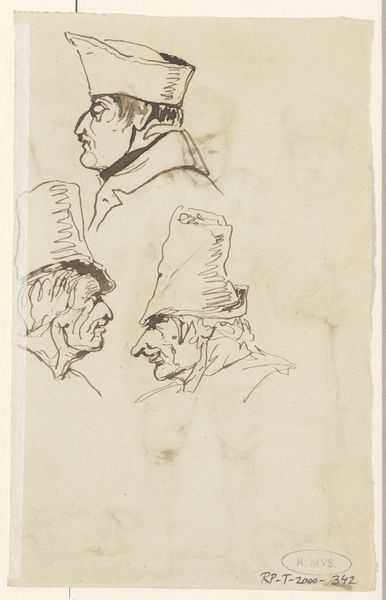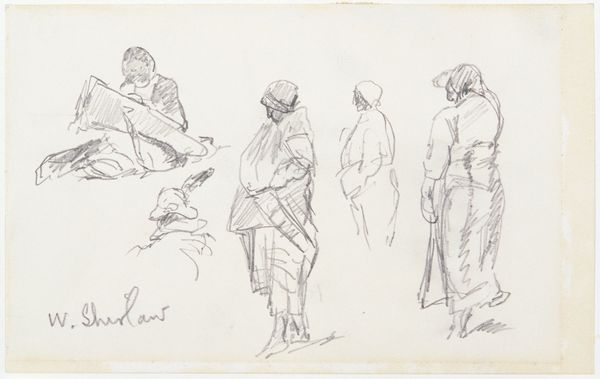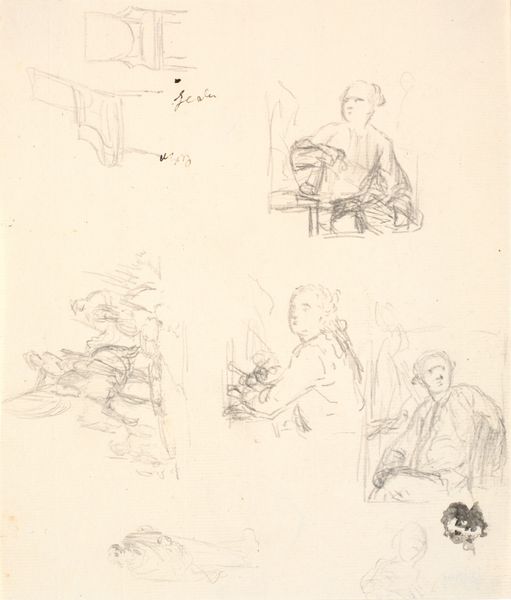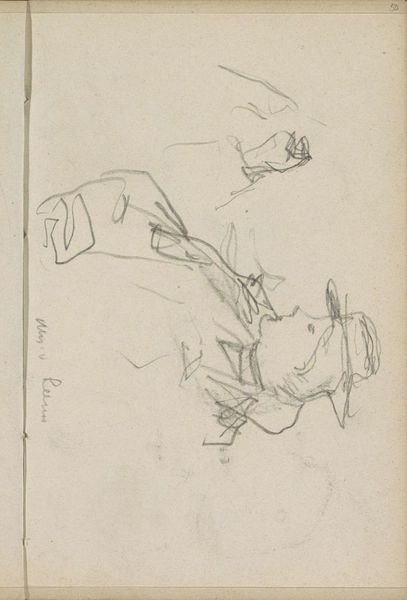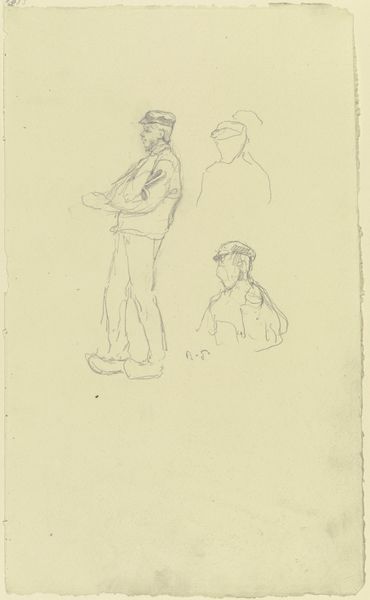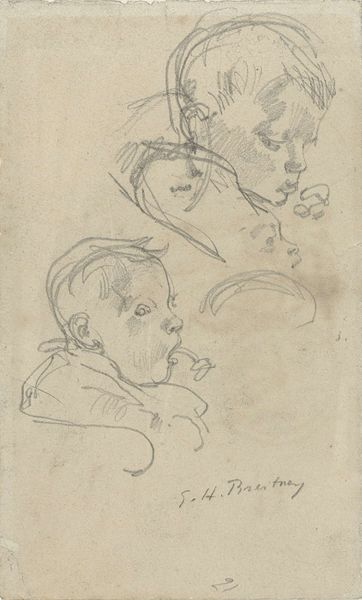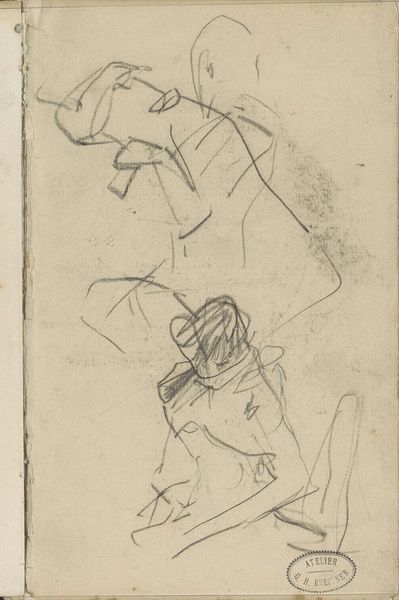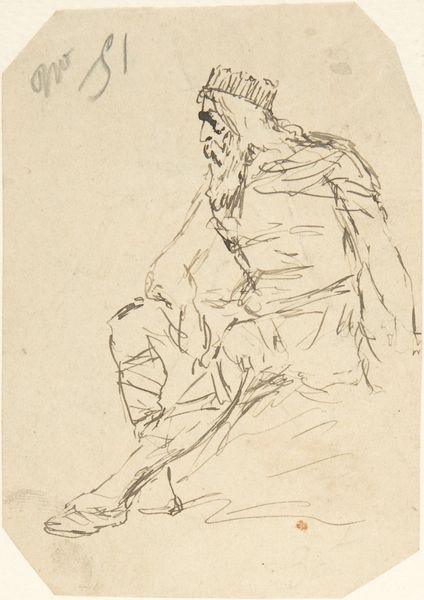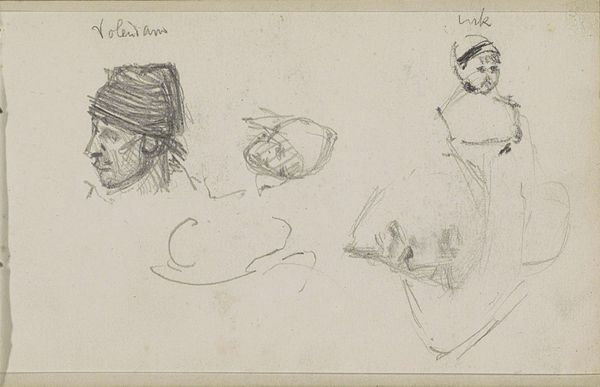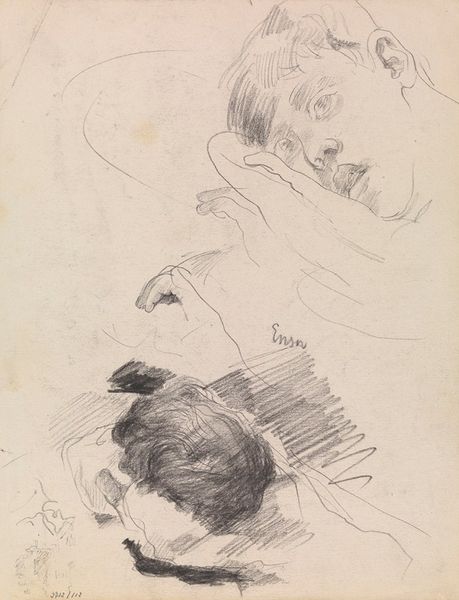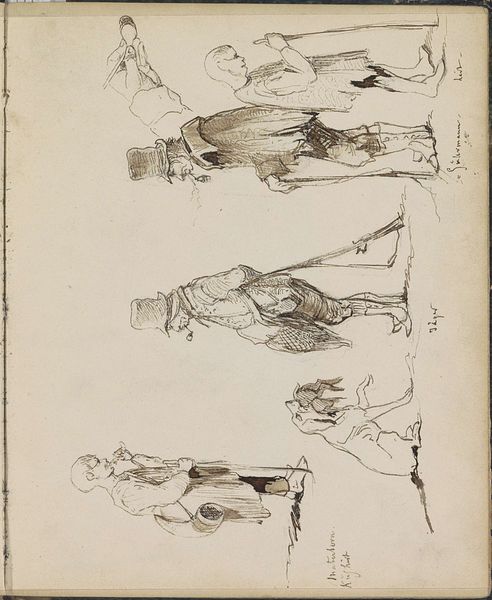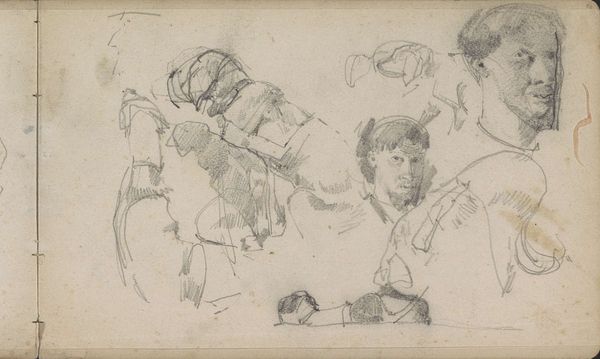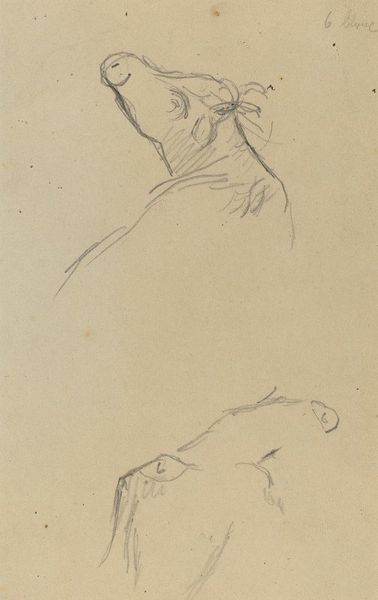
drawing, paper, dry-media, pencil, graphite
#
portrait
#
drawing
#
pencil sketch
#
paper
#
dry-media
#
pencil
#
graphite
Dimensions: 7 1/2 x 11 1/2 in. (19.05 x 29.21 cm) (approx.)
Copyright: Public Domain
Editor: So, this is Walter Shirlaw’s "Sketch Made on Indian Reservation," from around 1890, done in graphite and pencil. There's a vulnerability to these figures, despite the rough lines. It feels immediate. What can you tell me about this work? Curator: This drawing invites us to consider the gaze of the artist and the power dynamics inherent in depicting Indigenous people during a period of immense cultural disruption. What does it mean for Shirlaw, a white artist, to sketch these figures on a reservation? Editor: That's a really interesting point I hadn’t considered. So, you are saying that the act of sketching itself becomes part of a larger story about representation? Curator: Precisely. This wasn't a neutral act. The late 19th century was a time of aggressive assimilation policies. Consider the context: reservations as instruments of control, the forced removal of children to boarding schools… This drawing exists within that framework. How do we reconcile the artistic value with the uncomfortable reality of its creation? Editor: It makes you question the motivations and the implied narrative of the artist, doesn't it? Does the sketch seek to humanize or exoticize its subjects? Curator: Exactly! And that's a critical question. Are we looking at empathetic portraits or ethnographic studies contributing to a specific colonial agenda? Also, notice the fragment of a phrase jotted down at the lower right corner. What is the importance of recording words as an element to sketching? Editor: That makes you see the layers, doesn’t it? It's not just a sketch. It’s a document. Curator: Yes. A document laden with complex and often conflicting narratives. Reflecting on this makes us realize art never exists in a vacuum; its meaning is always shaped by the socio-political landscape.
Comments
No comments
Be the first to comment and join the conversation on the ultimate creative platform.
